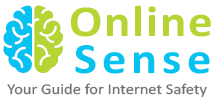We are sure that as a parent you are always concerned about your children don’t indulge in self-harm in their ignorance, or even more importantly, don’t keep secrets from you, which might eventually prove dangerous for them.
But have you ever thought that you might be ignorant about your children’s activities, and come to know about them only when it is too late?
The world of online Apps is such a secretive realm in which your children in their teens or tweens might be harming themselves while you might think they are simply ‘having fun’ with the cell phone.
Much has been written about apps that might be harmful to children, but we get to see a new app almost every now and then, which you must know about.
Here’s the list of nine apps that might be dangerous for your children
Certify your team in cybersecurity before your company is hit by a cyberattack
Omegle (Available on Android only)
What it is: An online chat app that allows users to socialize with strangers without the need to register.
Why is it dangerous: It’s possible that a stranger who doesn’t care what he/she is saying because that person is anonymous (No need to register) can say things that can badly impact your child’s psyche. Omegle now has a video chat services that greatly increase chances of your child’s personal pictures/videos being recorded and distributed online by notorious people.
Yubo (Formerly called Yellow)
What it is: A location-based social search mobile app that allows users to find others to share their Snapchat and Instagram usernames. It also allows users to chat with one another in the app.
Why it is dangerous: Perverts in your neighbourhood can groom your child by exchanging indecent pictures and videos. Once sex predators in your locality can view your child’s video/picture it gets easy to identify and stalk your loved one in real life.
Calculator App lock (IoS only)
What it is: Let’s you hide private photos and videos behind a calculator, which can be used for all regular calculations! Once users enter a secret numerical code, it opens up not only secret pictures but also contacts, bookmarks, and even a secret browser that leaves back no browsing history.
Why it is dangerous: It lets your child secretly save harmful content (e.g. pornography, candid videos that can be dangerous if it falls in strangers’ hands), and browse restricted sites without your knowledge.
Ask.fm (iOS only)
What it is: A social networking site where users create profiles and send each other anonymous questions.
Why it is dangerous: It can expose your child to extreme cyberbullying from other teens and tweens who can send very insensitive and rude questions and messages to intentionally hurt your child. They can do so freely because they stay anonymous, but they can make personal comments on your child because they can see to whom they are sending a question or message.
Kik Messenger
What it is: An anonymous instant messaging app to send and receive messages, photos, videos, sketches, mobile web pages, and other content after users register a username. No mobile numbers necessary for registration.
Why it is dangerous: Like many other anonymous messaging apps, Kik users cannot verify their contacts’ identities. This encourages sexual predators to harass children with a sexually explicit message. This anonymous mode of messaging can also be used for cyberbullying.
Hot or Not
What it is: A game app in which you upload your best pictures and get rated by other users in your area.
Why it is dangerous: Children seeking hot or not votes can have a bad impact on their self-esteem if they are not voted by other users. Also, if pictures of a child are openly by every other user in a locality, then sexual predators can visually identify victims in real life to stalk or harm them.
Wishbone
What it is: A comparison app that allows users to compare whatever you want to. You receive 12 comparison updates every day (e.g. hamburger or hot dog) and once you make your choice, it shows you what percentage of other users have chosen which option.
Why it is dangerous: Anyone can post any picture. E.g. someone can post a picture of your child and her friend and ask people to compare it. Yes, this too can be damaging to children’s self-esteem and can be used for cyberbullying through comparison, e.g. someone can compare your child with an ugly cartoon character.
Whisper
What it is: An anonymous app where the creators promote sharing secrets and meeting new people.
Why it is dangerous: Secrets… strangers… hope it rings a bell! Yes, this can be used to harass kids by sharing their secrets; also kids can be negatively influenced if they come in contact with strangers.


